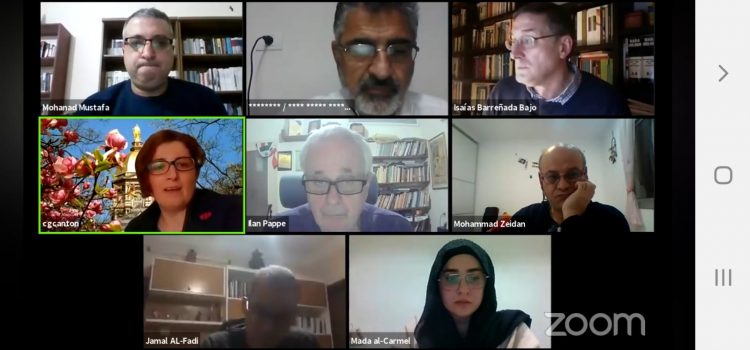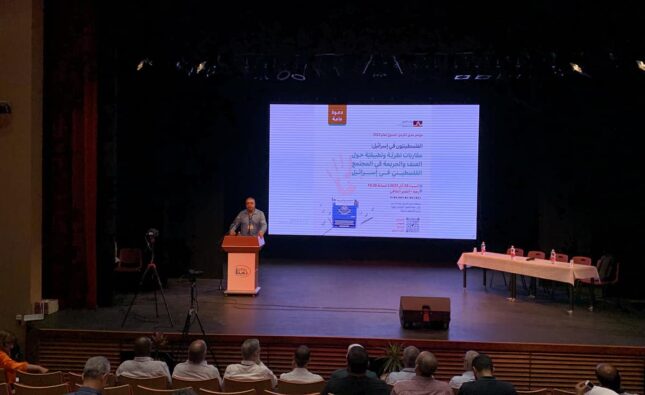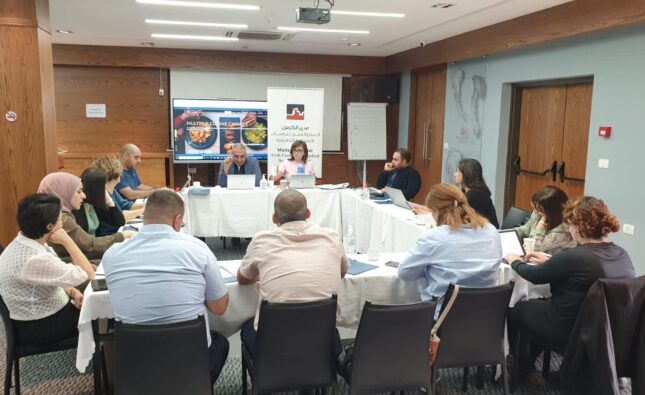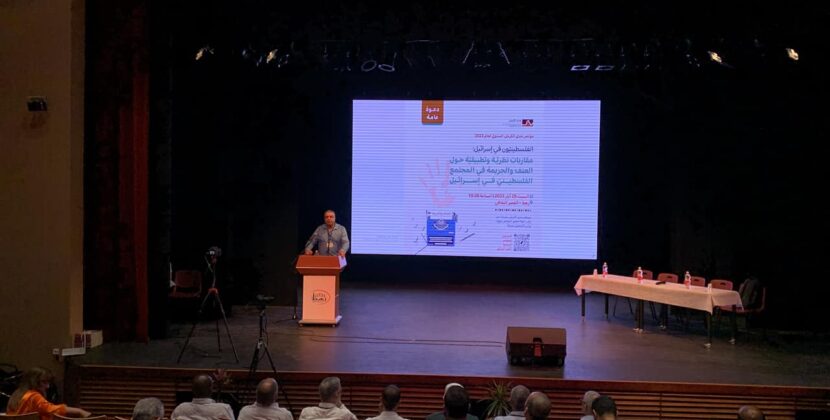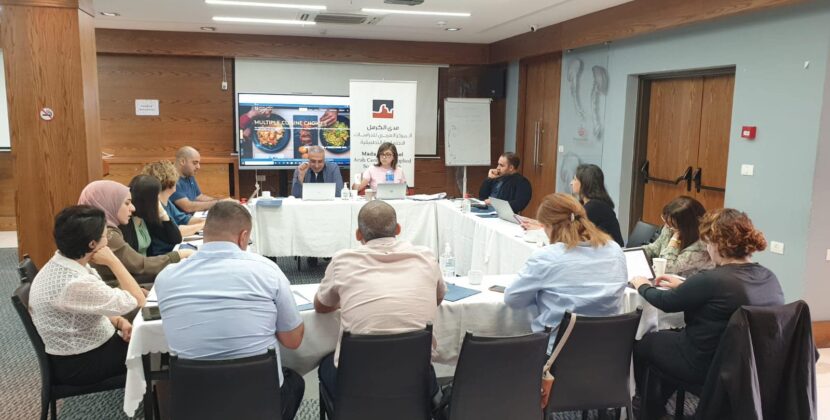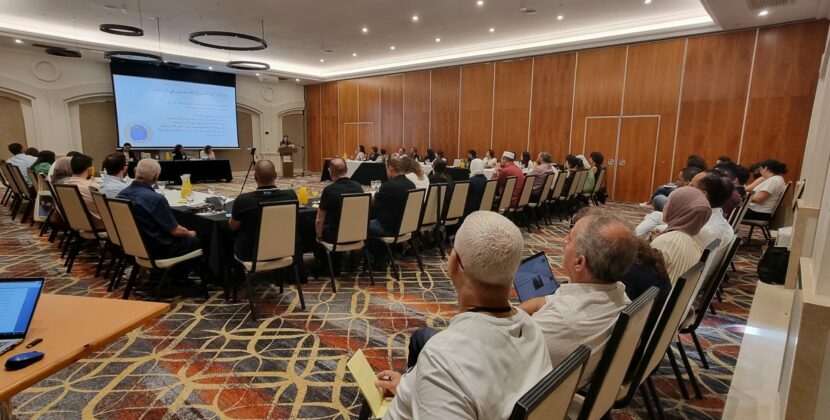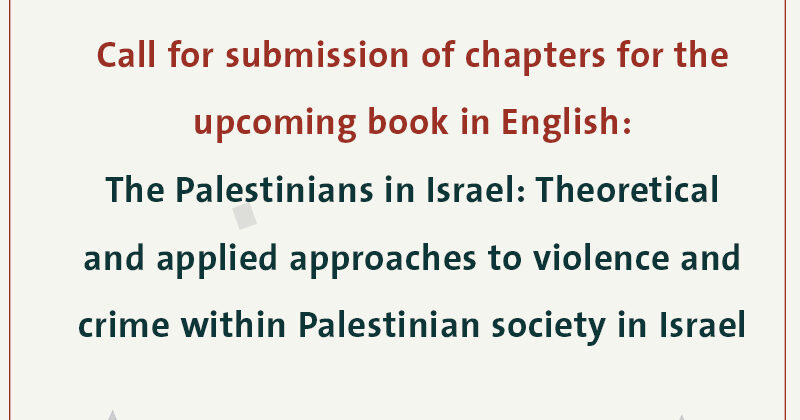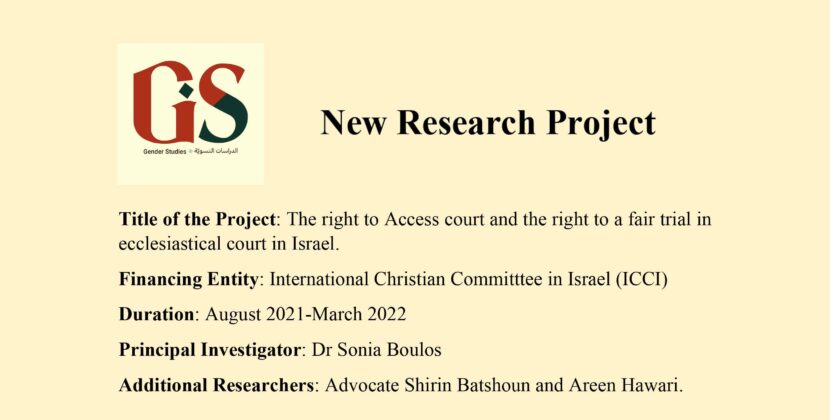Mada al-Carmel recently convened a seminar entitled “Striving for Palestinian Statehood: The Last Eight Years”, in order to discuss the efforts of the Palestinian Authority to gain international recognition of the State of Palestine, and the political and legal reverberations that such efforts have created. The seminar was overseen by Dr Ilan Pappé, renowned Israeli academic and head of the European Center for Palestine Studies at the University of Exeter in the UK.
After Dr Pappé’s opening remarks, the first presentation of the session was given by Dr. Isaías Barreñada, a professor of International Relations at Complutense University in Madrid. His talk was entitled “The EU and the Palestinian Bid for Statehood”. In it, Barreñada pointed out the rather ambiguous position that the EU has taken on Palestinian statehood, after having initially lent support to the idea following the signing of the Oslo Accords. Since then, pronouncements from the EU on the issue can often fluctuate in tone and import, depending on immediate circumstances. The EU’s position is governed by various interests, which can promote or curtail certain policies. A lack of consensus amongst member states is the primary reason why the EU has as of yet failed to recognise Palestinian statehood, however.
The second presentation came from Dr Sonia Pauls, professor of International Human Rights Law at Nebrija University in Madrid. It was entitled “Prospects for the Recognition of Palestinian Statehood”. In political terms, recognition of statehood would mean the renewed primacy of Palestinian self-determination above all over considerations, given that it is an essential criterion for the recognition of any entity as a state. This would narrow the divide between occupier and occupied, and would strengthen the Palestinians’ negotiating position. The conflict would become about border disputes rather than a more essential struggle for some form of meaningful self-determination. Palestinians would be able to use legal avenues that are currently not open to them. It would be able to sign treaties and to join the International Criminal Court, and it would gain the right to self-defence that all states have under article 51 of the UN charter. Dr Pauls argued that Palestinians do not duly consider these advantages however, and only view efforts to have Palestinian statehood recognised as a lever for pressuring Israel.
The third and final presentation of the session came from Dr Mohanad Mustafa, director of Mada al-Carmel, and was entitled “The Internationalization of the Israeli-Palestinian Conflict, and the Internationalization of State Recognition”. In it, he argued that the Palestinian leadership sought international recognition of state that did not yet exist in reality, a state whose existence depended on a resolution being found to the Israeli-Palestinian conflict. These efforts undertaken by the PA have not been pursued as an alternative to bilateral negotiations, but rather have been viewed as something which can bring Israel back to the negotiating table.
Dozens of viewers and contributors took part in this seminar via Zoom. A broadcast of the seminar was uploaded to Mada’s Facebook page, and gained over 2000 views in two days.





